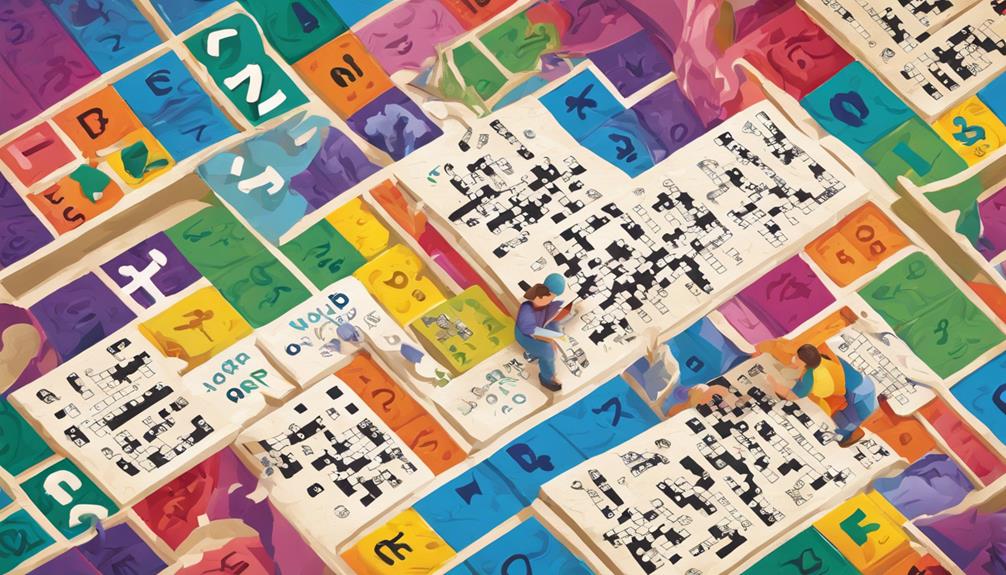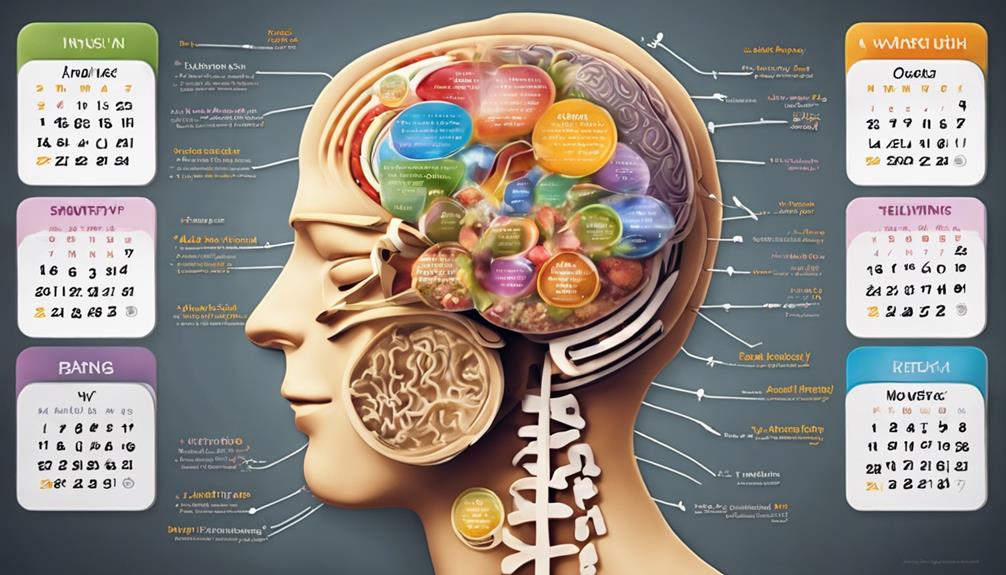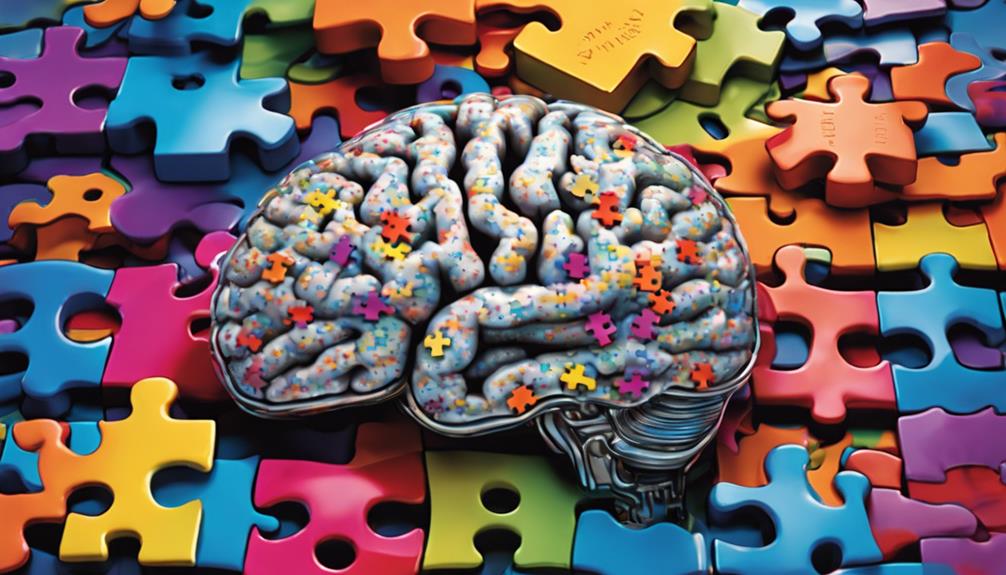As we age, memory lapses may occur more frequently. However, there are effective strategies that can help us combat these senior moments. Different types of memory lapses include observation, short-term, long-term, and sequential. To prevent memory lapses, engaging in cognitive activities such as puzzles and learning is recommended. Engaging in artistic pursuits can also enhance memory and cognitive skills. Practicing mindfulness can lead to increased awareness and focus. Establishing routines can help maintain a healthy brain and memory. Mental challenges can delay cognitive decline, while staying focused on daily tasks can improve memory retention. Additionally, adopting healthy habits like regular physical activity, sufficient sleep, balanced nutrition, and mental stimulation can help prevent memory lapses and maintain sharp minds. Furthermore, social connections and meaningful relationships play a vital role in keeping the brain active and resilient. Incorporating prevent memory loss strategies into daily life, such as maintaining a structured schedule and organizing tasks, can significantly enhance cognitive function. By combining these practices with a proactive mindset, individuals can foster long-term brain health and stay mentally sharp as they age.
Key Takeaways
- Engage in diverse cognitive activities to stimulate neuronal growth and delay cognitive decline.
- Embrace creativity through artistic pursuits to boost memory and cognitive skills.
- Practice mindfulness techniques to enhance memory retention and mental clarity.
- Establish routines for memory retention by providing structure and reducing decision-making stress.
- Challenge the brain with new tasks and stay mentally active to delay cognitive decline.
Types of Memory Lapses
Memory lapses come in various forms, each presenting unique challenges in daily life. Understanding the types of memory lapses can help us navigate through these moments more effectively. According to Dr. Stan Goldberg, memory lapses can be categorized into nine different types. These include observation, short-term memory, long-term memory, and sequential memory, among others. Observation memory lapses occur when we fail to notice important details, while short-term memory lapses involve forgetting recent information. Long-term memory lapses can make it challenging to recall past events accurately, and sequential memory lapses affect our ability to remember steps in a process.
Senior moments aren't always humorous; they can include serious instances like forgetting names or making unusual comments. It's important to recognize that information processing glitches, not just memory issues, can contribute to these lapses. By understanding the various types of memory lapses, we can take proactive steps to address and prevent them, ultimately improving our overall cognitive function and daily life experiences.
Understanding Cognitive Activities

Engaging in stimulating cognitive activities promotes the growth of new neurons and synaptic connections in seniors. Challenging your brain through various activities is essential for preventing cognitive decline and maintaining mental health.
Here are some key points to ponder:
- Stimulating Neuronal Growth: Activities like puzzles, learning new skills, or engaging in creative pursuits can help create new neural pathways in the brain, which is vital for combating cognitive decline.
- Delaying Dementia Onset: Research has shown a clear connection between engaging in challenging cognitive tasks and delaying the onset of conditions like dementia, highlighting the importance of keeping the mind active.
- Enhancing Cognitive Function: Challenging the brain with diverse cognitive activities not only improves memory and cognitive abilities but also contributes to overall well-being and mental acuity.
Importance of Creativity
Creativity is like a superpower for our brains, giving us the ability to think outside the box and solve problems in unique ways.
Engaging in artistic activities, such as painting or writing, can boost our memory and cognitive skills, keeping our minds sharp and active.
Boost Memory With Art
Indulging in artistic endeavors like painting, drawing, or sculpting can positively impact memory retention and cognitive function, suggesting a link between creative expression and mental agility in older adults.
- Artistic activities stimulate the brain, enhancing memory function and cognitive skills.
- Creative expression through art fosters neural connections, supporting overall cognitive health.
- Practicing art forms a mental workout, challenging memory and cognitive abilities.
Engaging in art not only boosts memory but also provides a creative outlet, reduces stress, and promotes mental well-being in seniors. By incorporating art into daily routines, older adults can enjoy the benefits of improved cognitive function, memory retention, and overall brain health.
Creative Brain Exercises
Exploring new artistic hobbies and engaging in creative brain exercises can greatly enhance cognitive function and help prevent memory lapses in older adults. Activities like playing musical instruments or painting stimulate the brain, providing energy that boosts cognitive abilities.
Sculpting or writing can also help seniors stay mentally agile, promoting cognitive health and alertness. By incorporating creativity into daily routines, older adults can support their cognitive health and overall well-being.
These creative brain exercises not only stimulate the mind but also contribute to preventing memory decline. Hence, it's essential for seniors to explore new hobbies and artistic pursuits to maintain cognitive function and combat memory lapses effectively.
Mindfulness Practices

Mindfulness practices enhance focus, attention, and cognitive performance by promoting present-moment awareness and reducing mental distractions. When it comes to preventing memory lapses and boosting cognitive performance, engaging in mindfulness techniques can be highly beneficial. Here are three key ways mindfulness practices can help improve memory and mental clarity:
- Increased Awareness: Mindfulness encourages us to be fully present in the moment, leading to heightened awareness of our surroundings and internal experiences.
- Reduced Distractions: By practicing mindfulness, we learn to quiet the mind and let go of distracting thoughts, allowing for better focus and concentration.
- Enhanced Memory Retention: Mindfulness can improve memory recall by training the brain to be more attentive and receptive to information.
Incorporating mindfulness into daily routines can't only support cognitive well-being but also foster emotional resilience. So, next time you find yourself struggling with memory lapses, consider incorporating mindfulness practices into your daily life for a sharper mind and improved focus.
Benefits of Establishing Routines

Establishing routines is key to maintaining a healthy brain and preventing memory lapses. By following a consistent schedule, we reduce stress and cognitive load, allowing our brains to function at their best.
Routines provide structure and familiarity, supporting memory retention and overall cognitive well-being.
Routine for Memory
Establishing daily routines can greatly enhance memory retention while reducing cognitive load and decision-making stress. When it comes to setting up routines for memory, here are some key benefits to keep in mind:
- Consistent Schedules: Support ideal brain function and help prevent memory lapses.
- Structure and Stability: Routines provide a sense of structure and stability for the brain, enhancing cognitive well-being.
- Reinforcement of Healthy Habits: Regular routines reinforce healthy habits like adequate sleep and balanced nutrition, which are essential for memory.
Consistency in Habits
How can consistency in our habits benefit our memory and cognitive well-being?
Establishing regular routines plays a crucial role in reducing cognitive load and decision-making stress, which in turn can enhance memory retention. By following consistent schedules, we provide our brains with structure and stability, supporting peak cognitive functioning. Routines help streamline brain activity by minimizing the need for constant adjustments and choices.
It's essential to include ample sleep and balanced nutrition within our routines to maintain cognitive health and memory. Creating a supportive environment with familiar habits can greatly contribute to cognitive well-being, ultimately aiding in the prevention of memory loss.
Stick to your routines for a healthier mind and sharper memory!
Engaging in Cognitive Challenges

Engaging in cognitive challenges such as puzzles and brain teasers can effectively stimulate the brain and promote neuroplasticity. Research indicates that participating in these activities can enhance memory retention, delay cognitive decline, and improve overall cognitive function in seniors.
Here are three compelling reasons why engaging in cognitive challenges is beneficial for memory and cognitive health:
- Enhanced Memory Retention: By regularly challenging your brain with puzzles and teasers, you can strengthen your memory recall abilities and maintain sharpness in everyday tasks.
- Improved Cognitive Function: Engaging in cognitive challenges creates new neural pathways, enhancing cognitive flexibility and problem-solving skills, which are essential for cognitive function.
- Delaying Cognitive Decline: Learning new skills or languages through mental challenges can help delay the onset of cognitive decline, keeping your mind sharp and agile.
Staying Present in Daily Activities

To further enhance cognitive function and memory retention, now let's focus on the importance of staying present in daily activities. Practicing mindfulness in our everyday tasks can greatly improve our focus, reduce distractions, and boost cognitive performance. By being fully engaged in what we're doing, we enhance memory retention and overall cognitive abilities. Mindfulness techniques help us stay aware of the present moment, decreasing the chances of memory lapses and mental fatigue.
| Benefits of Staying Present | How it Helps |
|---|---|
| Enhanced Focus | Improves memory retention |
| Reduced Cognitive Distractions | Boosts cognitive performance |
| Promotes Awareness | Prevents memory lapses |
Engaging in activities with full attention supports clarity of thought and sharpness of mind. Cultivating awareness of the present moment not only prevents memory lapses but also contributes to overall cognitive well-being. Stay present, stay focused, and reap the benefits of improved memory retention and cognitive performance.
Establishing Healthy Habits

Establishing healthy habits plays an important role in maintaining cognitive function and preventing memory lapses. To keep our brains sharp and memory intact, it's essential to incorporate the following practices into our daily routines:
- Physical activity: Engaging in regular exercise not only benefits our physical health but also boosts cognitive function and reduces the risk of memory lapses. Whether it's a brisk walk, yoga, or dancing, staying active is key to a healthy mind.
- Adequate sleep: Getting enough quality sleep is crucial for memory consolidation and best brain function. Aim for 7-9 hours of sleep each night to support your cognitive abilities and enhance focus and alertness throughout the day.
- Healthy lifestyle: Adopting a balanced and nutritious diet, along with regular mental stimulation, is necessary for overall cognitive well-being. Prioritize whole foods, brain-boosting nutrients, and challenging activities to keep your mind sharp and memory strong.
Frequently Asked Questions
How Do You Prevent Memory Loss in the Elderly?
We prevent memory loss in the elderly by engaging in cognitive activities, practicing mindfulness, establishing routines, socializing, and being creative. These strategies stimulate the brain, reduce cognitive lapses, combat loneliness, and boost cognitive function for enhanced memory retention.
How Do You Reduce Senior Moments?
We reduce senior moments by engaging in cognitive activities, practicing mindfulness, slowing down, establishing routines, and staying mentally agile. These strategies help us maintain sharp minds, reduce cognitive lapses, and lead to better memory preservation as we age.
How Can I Help My Elderly Person With Memory Loss?
We can assist your elderly loved one with memory loss by engaging them in cognitive activities, promoting mindfulness, establishing routines, encouraging creativity, and fostering social interactions. These strategies help enhance cognitive function and combat memory lapses effectively.
What Is the Difference Between Dementia and Senior Moments?
Recognizing the distinction between dementia and senior moments is important. Senior moments are occasional memory lapses due to aging, while dementia is a progressive cognitive decline. Seeking medical advice can help differentiate and manage these conditions effectively.
Conclusion
To sum up, by understanding the types of memory lapses and engaging in cognitive activities like creativity and mindfulness practices, we can prevent senior moments.
Establishing routines, engaging in cognitive challenges, and staying present in daily activities are also key strategies.
By establishing healthy habits, we can keep our minds sharp and prevent memory lapses.
Remember, with these strategies in place, we can defy senior moments and keep our memory strong for years to come.









